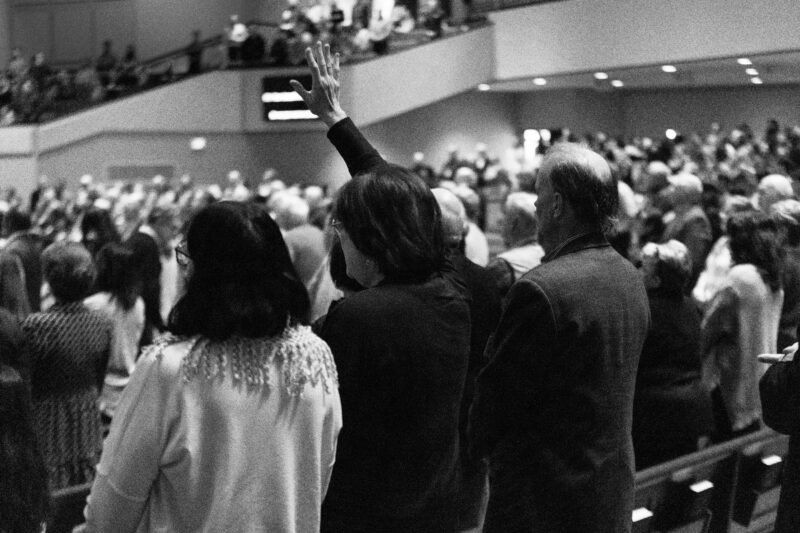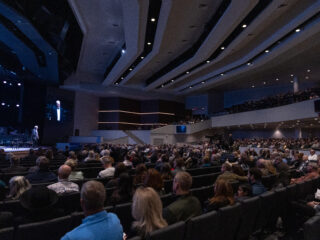The recent pandemic has ignited a small controversy in most churches around the country. This controversy, like most problems in life, came from a well-meaning effort done without having the time to fully understand the consequences of the decision being made. Let’s go back and remember where we were. Two years ago, we were facing a tsunami of COVID-19. The pandemic was a worldwide virus that could, if we weren’t careful, kill millions of human beings. We were told to wipe down every surface, wear masks, and stay home. We were told, sometimes ordered, to stay home from work, school, and of course, church.
We were in a team meeting on a Friday morning when the word came from Governor Lee of Tennessee. We were shutting down the state for the next few weeks. In the snap of a finger, we were planning to become an online church. Thanks to a very good communication team, we were able to produce a very meaningful worship service engaging our membership on their electronic devices.
Maybe we were too good.
People got up on Sunday morning, made their coffee, got comfortable in their recliners, and watched the worship service. As the pandemic dragged on, we got pictures from members who were watching our services at the beach, in the mountains and in other various parts around the world. If their children were going to school online and they were have having to work from home, why not make home a little more fun?
Somewhere during this time, people starting choosing to worship online. The same people who had earlier complained about not being able to go to church were now choosing to stay at home and watch church online. Now that we are almost past the pandemic, church leaders are beginning to wonder if church attendance will ever return to pre-COVID-19 numbers. The answer is simple: they won’t.
Now that most areas have relaxed their COVID-19 precautions about gathering in large crowds, we’re discovering that our congregations now fall into three groups. The first group will never come back. They stayed home and found out they really didn’t miss church. They’re gone and they won’t be back. The second group loves online church. It just works with their lifestyle. They will stay connected to their small group, but except for special occasions like Christmas, they won’t come back to church. The third group will settle into a hybrid. They will still come to church, but they will supplement their attendance with online services. They will tell you they go to church every Sunday, but two out of four Sundays will be at home or on the road watching online.
Now I realize online church is a Godsend for a lot of people. For people who are shut-in or sick, or those who have to work on Sunday mornings, being able to watch the worship service online is their only connection to the church. I’m not saying online church is a bad thing. I’m just wondering if digital church is all that we were told it would be.
Recent medical studies have told us how damaging the isolation of the pandemic quarantine has been to our people. Addictions went up. Suicides went up. Mental health professionals were overrun. The forced solitude of the quarantine was more than a lot of our friends could take.
We shouldn’t have been surprised. Human beings are created for community. We don’t do well by ourselves. We need the fellowship of each other. Alcoholics Anonymous is successful because of the group support of a person in recovery. We’re more creative and energetic when we work in groups. In all kinds of ways, we need each other.
One of the surprising things I learned during the pandemic was how many of my congregation live Sunday to Sunday. Every day, life beats them down, but they keep thinking, “If I can get back to church on Sunday, I’ll see my friends. They will pray for me. They will love me. I’ll make it if I can just get to church.”
This made me think about the fine print written on a lot of raffle cars. You know the ones. You buy a ticket for a dollar for the chance to win a car and on the bottom of the card you’ll find printed in very small letters, “You must be present to win.” If you have the winning ticket, but you aren’t there when they do the drawing, you won’t win the new car.
I’m beginning to think church is the same way. You might have the winning ticket, but you have to be at church to win. There is something about hearing the church sing songs of faith, of praying with friends, of hearing the Word read knowing you aren’t the only one who struggles with that passage.
I tell friends the church is like a wagon train. We bump and thump along and we’re all sure we could go faster if we didn’t have to keep waiting on slowpokes. Then, the bad guys come over the horizon and you sure are glad everyone else is there.
Online church has its place. In some ways, it’s a necessity and I’m glad we have it. Yet, it does have its limits. There are some things about church you get only if you are there – in the room – together.
We need each other. Our friends count on us being there. They need us to be present so they can win. Use digital church if you have to, but remember, there’s a lot more to church than what you can watch on a screen. For the rest of it, you’ll have to be present to win.









